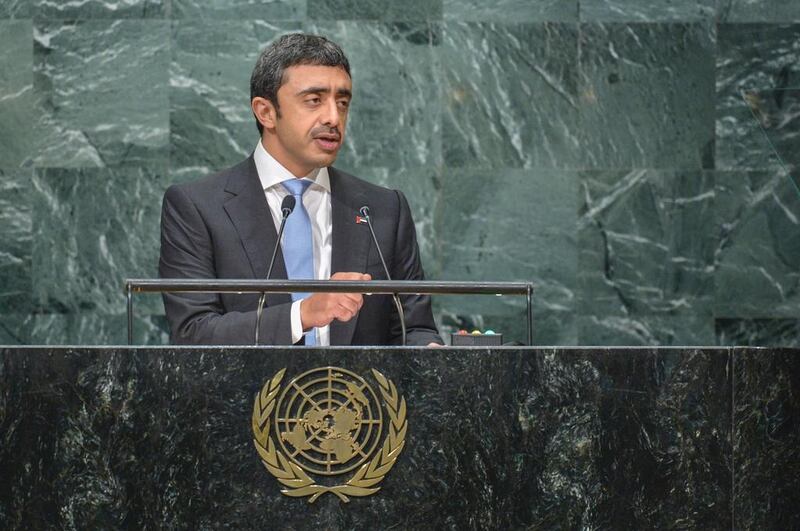When the UAE’s Minister of Foreign Affairs Sheikh Abdullah bin Zayed stood before the UN General Assembly on Saturday, he had some tough words for the assembled world leaders. Powerful countries, he said, in the Arab world and beyond it, “have settled for managing the crises that have struck our region without overcoming them” – and as a result, these crises have only become more complex and more difficult to solve.
This was Sheikh Abdullah’s theme for the speech, that too often the troubles that afflict the Middle East – from the ongoing Palestinian occupation, to the rebuilding of Iraq, to the wars in Libya, Yemen and Syria – are dealt with piecemeal. “Bandaging the wounds, repeating charitable humanitarian efforts or holding recurring international conferences are no substitutes for solving these crises,” he said.
No challenge better encapsulates this than that of extremism. It has disproportionately affected the Middle East, yet, as Sheikh Abdullah told the world body, it is not limited to one region or religion. It is a global threat, without borders. And because it is a global threat, it will require a concerted effort by many countries.
In the region alone, the complexity is clear. The battle against ISIL is not, primarily, a military battle. It is a battle for hearts and minds. ISIL’s supporters believe they are engaged in a battle for the end of the world. That is a powerful recruiting tool and it appeals particularly to those who have been disenfranchised from mainstream societies, whether in the Arab world or in the West.
In response, a new narrative will be needed, particularly one that bears on questions of religion. It is why organisations such as the Muslim Council of Elders and the Forum for the Promotion of Peace in Muslim Communities are important, and why gestures such as the meeting between Sheikh Mohammed bin Zayed and Pope Francis matter so much. By showing what tolerance and coexistence look like in practice, some of the allure of extremism can be reduced.
But there is a limit to what one country can do. The reason the UAE has set up the Sawab anti-extremism centre in concert with the United States is that the battle goes far beyond any border. The response must be global. Trying to find bandages for the problem is a short-term solution – and a short-sighted response.





